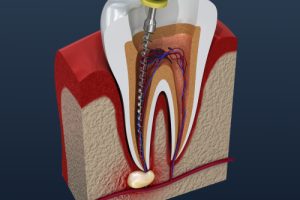When dental pain or complications arise, finding the right care quickly can make all the difference. At Davie Advanced Dentistry, home of the best dentist in Davie, Dr. Abbo helps patients regain comfort, confidence, and a healthy smile through precise, gentle oral surgery.
Our goal is to make every visit as smooth and stress-free as possible, combining modern technology with a patient-centered approach. With Dr. Abbo guiding your treatment towards optimal oral health, you can feel confident knowing you are in capable, caring hands.
Call us today at (954) 434-3331 to schedule a consultation and take the first step toward a healthier smile. We proudly welcome patients from Weston, Cooper City, and Plantation, offering convenient access to advanced oral care in the heart of Davie, FL.
Our practice has earned a reputation for personalized, high-quality care in Davie, FL. Dr. Abbo approaches each procedure with calm professionalism, taking the time to explain every step and answer questions. Patients appreciate our inviting office atmosphere, modern surgical tools, and commitment to minimizing anxiety during oral surgery.
We also focus on local convenience. Davie residents love our proximity to landmarks like Tree Tops Park, Davie Commons Park, and Westfield Broward Mall, while nearby communities such as Plantation, Weston, and Cooper City find our location easy to reach for appointments.
Dr. Abbo integrates advanced technology with gentle care, including sedation options, to deliver precise results. Digital imaging and 3D scans allow for accurate treatment planning, while modern anesthesia and sedation techniques support a calm, pain-free experience. Oral surgery can enhance long-term success rates for dental implants and overall oral function.
From pre-surgical consultations to post-operative follow-ups, our team works closely with each patient, making recovery as smooth as possible. Clear instructions, regular check-ins, and a friendly team presence all contribute to a supportive environment.
Oral surgery encompasses a variety of procedures performed on the teeth, gums, and jawbone. While some patients may require an outside referral, our practice is equipped and experienced to handle many common and complex surgical needs right here in our office. This allows for seamless, consistent care from the caring dental team you already know. Additionally, oral surgery may be needed to create space for orthodontic treatment, such as braces.
Wisdom teeth that are misaligned, partially erupted, or impacted can cause pain, swelling, and infection. Removing these teeth early helps prevent damage to neighboring teeth and reduces the risk of more complex problems later.
When a tooth is too damaged for repair through fillings or crowns, extraction may be necessary. Dr. Abbo performs these procedures carefully to minimize discomfort and protect surrounding tissue.
Trauma, congenital conditions, or chronic jaw problems may require corrective or reconstructive surgery. Dr. Abbo uses advanced imaging and surgical techniques to improve alignment, function, and overall oral health.
Infections, abscesses, or sudden dental trauma can require urgent oral surgery to prevent further complications. Our team is prepared to handle emergencies promptly while prioritizing patient comfort, including interventions like a sinus lift when necessary. Oral surgery may also be necessary for severe, persistent toothaches caused by abscesses.
If you are experiencing persistent dental pain, swelling, or difficulty chewing, call (954) 434-3331 to schedule a consultation with Dr. Abbo.
Tooth extraction or wisdom tooth extraction becomes necessary when severe tooth damage or decay due to bacterial infection occurs. This procedure helps prevent issues like overcrowding in the mouth or damage to natural teeth. Your dentist will recommend tooth extractions only as a last resort when your oral health is under severe threat.
At Davie Advanced Dentistry, we ensure you’re comfortable during the procedure by applying a local anesthetic. We also offer sedation dentistry to ease any anxiety you may experience. IV sedation can help patients get the care they need if they are extremely nervous about dental work.


Your teeth play an important role in stimulating your jaw so that it stays strong for the rest of your smile. If you suffer from missing teeth or periodontal (gum) disease, this can cause your jaw to weaken and deteriorate over time. As a result, your oral health can begin to decline and increase your risk for further complications. Fortunately, our Davie practice can conduct a bone graft to assimilate existing bone tissue into your jaw. Bone grafting is sometimes used in conjunction with dental implants to improve success rates.
That way, the new tissue will integrate with the rest of your jaw to promote better tissue growth. A bone graft can also be performed as a supplemental procedure to make you a better candidate for dental implants.
Missing teeth or periodontal (gum) disease can weaken and deteriorate your jaw over time, posing risks to oral health. Our practice in Davie is equipped to perform a bone graft, incorporating existing bone tissue into your jaw.
Contrary to popular belief, root canal therapy is not a painful procedure. It is the most effective way to eliminate harmful bacteria without extracting the tooth or natural teeth. This therapy is performed when an untreated cavity has infected the tooth’s root, causing severe pain and sensitivity. During a root canal, our dentists remove the infected pulp, clean the area, and fill the tooth with a crown. The result is a renewed, healthy smile.

Proper post-operative care is essential for a smooth recovery after oral surgery. Dr. Abbo and the team at Davie Advanced Dentistry provide detailed instructions as well as various treatment options to help patients minimize discomfort, reduce the risk of infection, and promote healing.
Understanding oral surgery costs can help patients make informed decisions about their care. At Davie Advanced Dentistry, Dr. Abbo works with each patient to discuss available financing options and payment plans.
While certified oral and maxillofacial surgeons receive highly specialized training, Dr. Abbo is a Prosthodontist who has advanced training in surgical procedures like dental implant placement, bone grafting, and routine extractions. We handle many common oral surgery needs in our office with a commitment to excellence, providing convenience and continuity of care for our patients.
For a simple tooth extraction, initial healing typically takes one to two weeks for the socket to close. More complex surgical extractions or wisdom teeth removal may require a longer initial recovery period, often seven to ten days before returning to a normal diet. We provide detailed instructions to promote rapid healing and ensure optimal results.
Yes, the placement of the titanium implant post into the jawbone is a surgical procedure. As a Prosthodontist, Dr. Abbo performs this step and then completes the final restoration (the crown) to ensure the entire tooth replacement process is cohesive and successful.
For the first 24-48 hours after an oral surgery procedure, you should consume only soft or liquid foods, such as yogurt, smoothies, cool soups, and mashed potatoes. You must avoid chewing near the surgical site and never use a straw, as the suction can dislodge the necessary blood clot and disrupt healing.